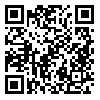Volume 2, Issue 3 (2022)
jpt 2022, 2(3): 237-247 |
Back to browse issues page
Download citation:
BibTeX | RIS | EndNote | Medlars | ProCite | Reference Manager | RefWorks
Send citation to:



BibTeX | RIS | EndNote | Medlars | ProCite | Reference Manager | RefWorks
Send citation to:
Samadieh M. The Ontological and Axiological Position of Tuche or Fortune in Aristotle's View. jpt 2022; 2 (3) :237-247
URL: http://jpt.modares.ac.ir/article-34-64036-en.html
URL: http://jpt.modares.ac.ir/article-34-64036-en.html
Department of Islamic Studies, Faculty of Humanities, University of Maragheh, Maragheh, Iran , samadieh@maragheh.ac.ir
Abstract: (2298 Views)
Aristotle's discussions about Tuche (Τύχη) or fortune have obvious contradictions in two domains of ontology and axiology. In the domain of ontology, he has testified to the existence of fortune as a cause by accident- a cause by accident for an event which has occurred out of a choice based on thought and for a given intention. Aristotle believes that fortune-based affairs are subjects of intention and intellection which emerge from those agents who can take volitional actions. At the same time, he introduced fortune as an anti-rule and instable affair with indeterminate and purposeless causes. He accepted the existence of fortune even in the domain of the actions related to Techne and human happiness. However, he does not attach any value to it in axiology and declares it to be a cause by accident that comes after nature and intellect, even believing that there is no knowledge for it. Moreover, it is valueless in the domain of the action related to human happiness.
Article Type: Original Research |
Subject:
Metaphysics (Ancient)
Received: 2022/03/26 | Accepted: 2022/08/21 | Published: 2022/09/19
Received: 2022/03/26 | Accepted: 2022/08/21 | Published: 2022/09/19
References
1. Aristotle (1926). Aristotle: The art of rhetoric. Freese JH, translator. Cambridge, MA: Harvard University Press. [Link] [DOI:10.4159/DLCL.aristotle-art_rhetoric.1926]
2. Aristotle (1955). Aristotle: On sophistical refutations/On coming-to-be and passing away/On the cosmos. Forster ES, translator. Cambridge, MA: Harvard University Press. [Link] [DOI:10.4159/DLCL.aristotle-sophistical_refutations.1955]
3. Aristotle (1981). Aristotle: In 23 volumes (Volume 20; Eudemian Ethics). Rackham H, translator. Cambridge, MA: Harvard University Press. [Link] [DOI:10.1093/oseo/instance.00264018]
4. Aristotle (1985). Politics. Enayat H, translator. Tehran: Sepehr. [Persian] [Link]
5. Aristotle (2004). Nicomachean Ethics. Crisp R, translator. Cambridge: Cambridge University Press. [Link]
6. Aristotle (2006a). Nicomachean Ethics. Lotfi MH, translator. Tehran: Tarh-e No. [Persian] [Link] [DOI:10.1093/oseo/instance.00258591]
7. Aristotle (2006b). Physics. Lotfi MH, translator. Tehran: Tarh-e No. [Persian] [Link]
8. Aristotle (2006c). Metaphysics, Lotfi MH, translator. Tehran: Tarh-e No. [Persian] [Link]
9. Aristotle (2013). The art of rhetoric. Saadat E, translator. Tehran: Hermes. [Persian] [Link]
10. Cardullo L (2014). The concept of luck (τυχη ed ευτυχια) in Aristotele. Spazio Filosofico. 12:541-554. [Link]
11. DuBois EC (2014). Does happiness die with us?; An Aristotelian examination of the fort. Journal of Philosophy of Life. 4(1):28-37. [Link]
12. Freeman K (1948). Ancilla to the pre-socratic philosophers. Cambridge, MA: Harvard University Press. [Link]
13. Huismann T (2016). Aristotle on accidental causation. Journal of the American Philosophical Association 2(4):561-575. [Link] [DOI:10.1017/apa.2016.33]
14. Lennox JG (1984). Aristotle on chance. Archiv Fur Geschichte Der Philosophie. 66(1):52-60. [Link] [DOI:10.1515/agph.1984.66.1.52]
15. Pritzl K (1983). Aristotle and happiness after death: Nicomachean ethics 1.10-11. Classical Philology. 78(2):101-111. [Link] [DOI:10.1086/366765]
16. Samadieh M, Mollayousefi M (2017). Aristotle and Phronesis (practical wisdom). Ayeneh Marefat. 17(4):1-24. [Persian] [Link]
17. Tabaczek OM (2013). Aristotle's concept of chance: Accidents, cause, necessity, and determinism; By John Dudley. American Catholic Philosophical Quarterly. 87(4):779-781. [Link] [DOI:10.5840/acpq201387456]
Send email to the article author
| Rights and permissions | |
 |
This work is licensed under a Creative Commons Attribution-NonCommercial 4.0 International License. |







